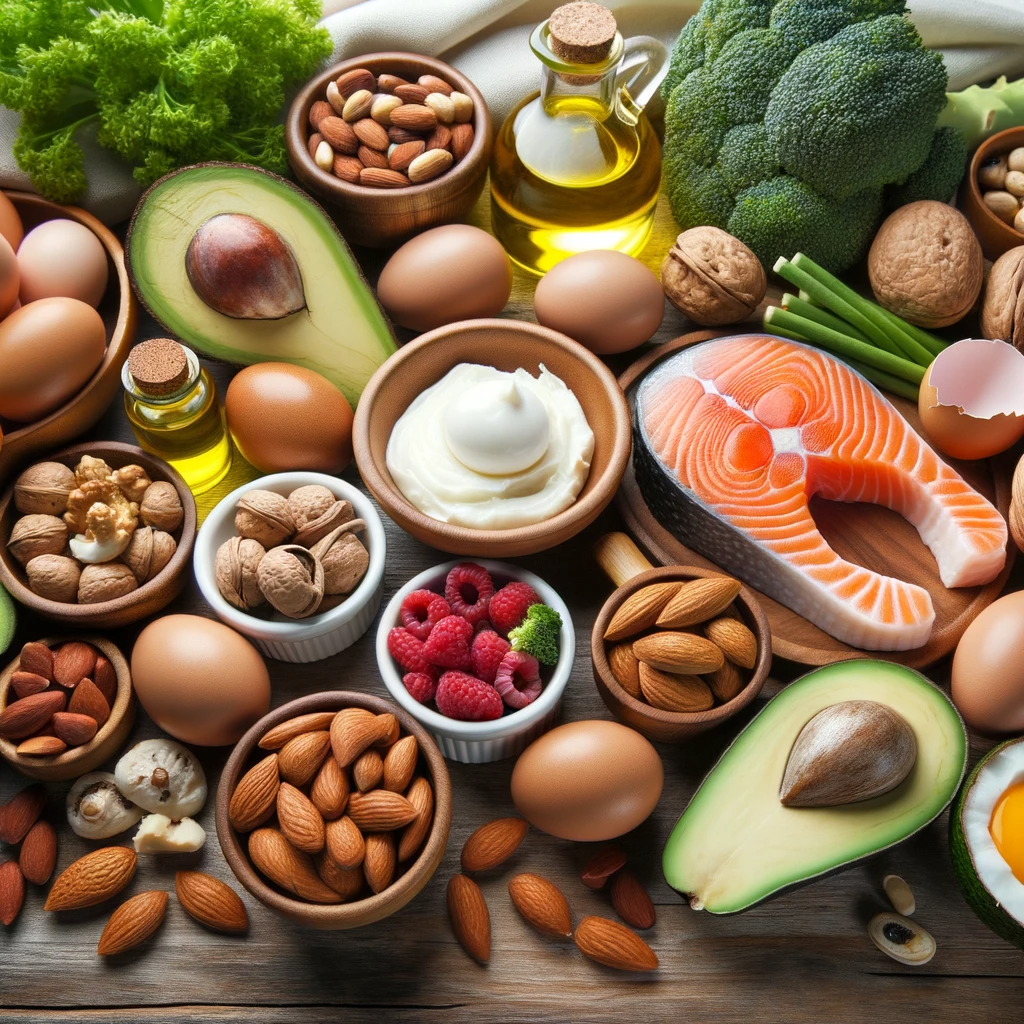The Ketosis Diet: Unlocking the Power of Fat
 Get your personalized diet plan (free trial)
Get your personalized diet plan (free trial)What is Ketosis?
Ketosis is a metabolic state where the body uses fat as its primary source of energy instead of carbohydrates. This shift occurs when carbohydrate consumption is significantly reduced, prompting the body to rely on stored fat for energy, producing ketones in the process. These ketones serve as a potent and efficient energy source, especially for the brain.

The Science Behind Ketosis
When you consume carbohydrates, they are broken down into glucose, the body's primary energy source. However, when carbs are scarce, the liver begins to convert fatty acids into ketones. These ketones can be used by most tissues in the body, including the brain, which cannot directly use fat as an energy source.
This metabolic adaptation has likely evolved to provide our ancestors with energy during times of food scarcity. Today, many people deliberately induce this state through the ketogenic diet to reap various health benefits.
Benefits of the Ketogenic Diet
The ketogenic diet isn't just a weight loss fad. It's been studied for various therapeutic applications. Here are some of its benefits:
- Weight Loss: By relying on fat for energy, stored fat is burned more effectively.
- Appetite Control: Ketones can suppress the hunger hormone ghrelin, leading to reduced appetite.
- Blood Sugar Control: The diet can stabilize blood sugar levels, making it a potential therapeutic option for diabetes management.
- Enhanced Brain Function: Ketones are a potent brain fuel. They may enhance cognitive functions and have been studied for their potential role in neuroprotective effects against conditions like Alzheimer's.
- Improved Heart Health: The diet can lead to improvements in risk factors like body fat, HDL cholesterol levels, blood pressure, and blood sugar.

Potential Side Effects of the Ketosis Diet
Like any significant dietary change, the ketogenic diet can come with side effects. Some people experience the 'keto flu' during the initial phase, which can include symptoms like fatigue, headache, irritability, difficulty focusing ("brain fog"), lack of motivation, dizziness, sugar cravings, and nausea. However, these symptoms are temporary and can be minimized or avoided by staying hydrated, ensuring adequate salt intake, and gradually reducing carbohydrate intake.
It's also essential to ensure you're getting a variety of foods to avoid nutrient deficiencies. A well-planned ketogenic diet can provide all the essential nutrients.
Conclusion
The ketosis diet offers a unique approach to weight loss and health improvement. While it's not suitable for everyone, many have found success with this low-carb, high-fat diet. If you're considering the ketogenic diet, it's essential to do your research, consult with a healthcare professional, and listen to your body's signals.
